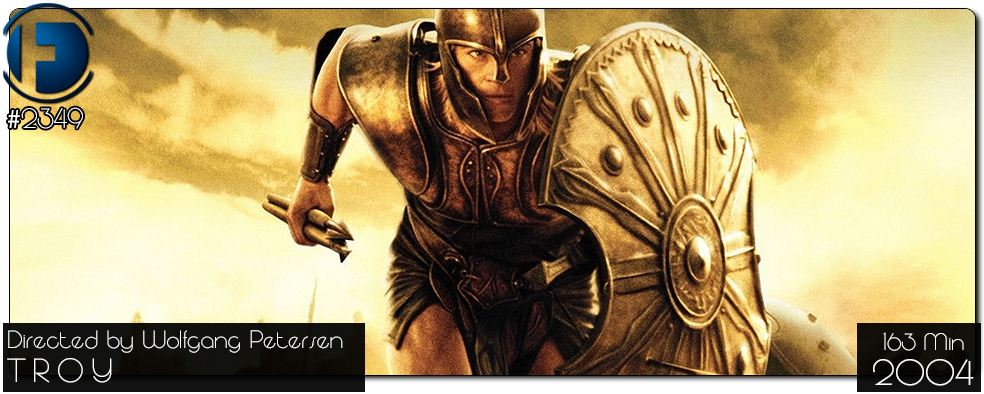Movie Review – Troy
Principal Cast : Brad Pitt, Eric Bana, Orlando Bloom, Diane Krueger, Brian Cox, Sean Bean, Brendan Gleeson, Rose Byrne, Peter O’Toole, Garrett Hedlund, Saffron Burrows, Julie Christie, John Shrapnel, Nigel Terry, James Cosmo, Julian Glover, Vincent Regan, Trevor Eve, Tyler Mane, Nathan Jones.
Synopsis: An adaptation of Homer’s great epic, the film follows the assault on Troy by the united Greek forces and chronicles the fates of the men involved.
********
Troy remains a significant entry in the modern tableau of historical epics, as directed by legendary filmmaker Wolfgang Petersen. Set against the backdrop of ancient Greece, the film dives deep into the legendary Trojan War as depicted in Homer’s Iliad. With a strong ensemble cast featuring Brad Pitt, Eric Bana, and Orlando Bloom, the film explores themes of honour, love, and the human cost of warfare. Petersen’s direction brings a grounded realism to the mythic tale, offering viewers a compelling portrayal of legendary figures grappling with fate and the consequences of their actions.
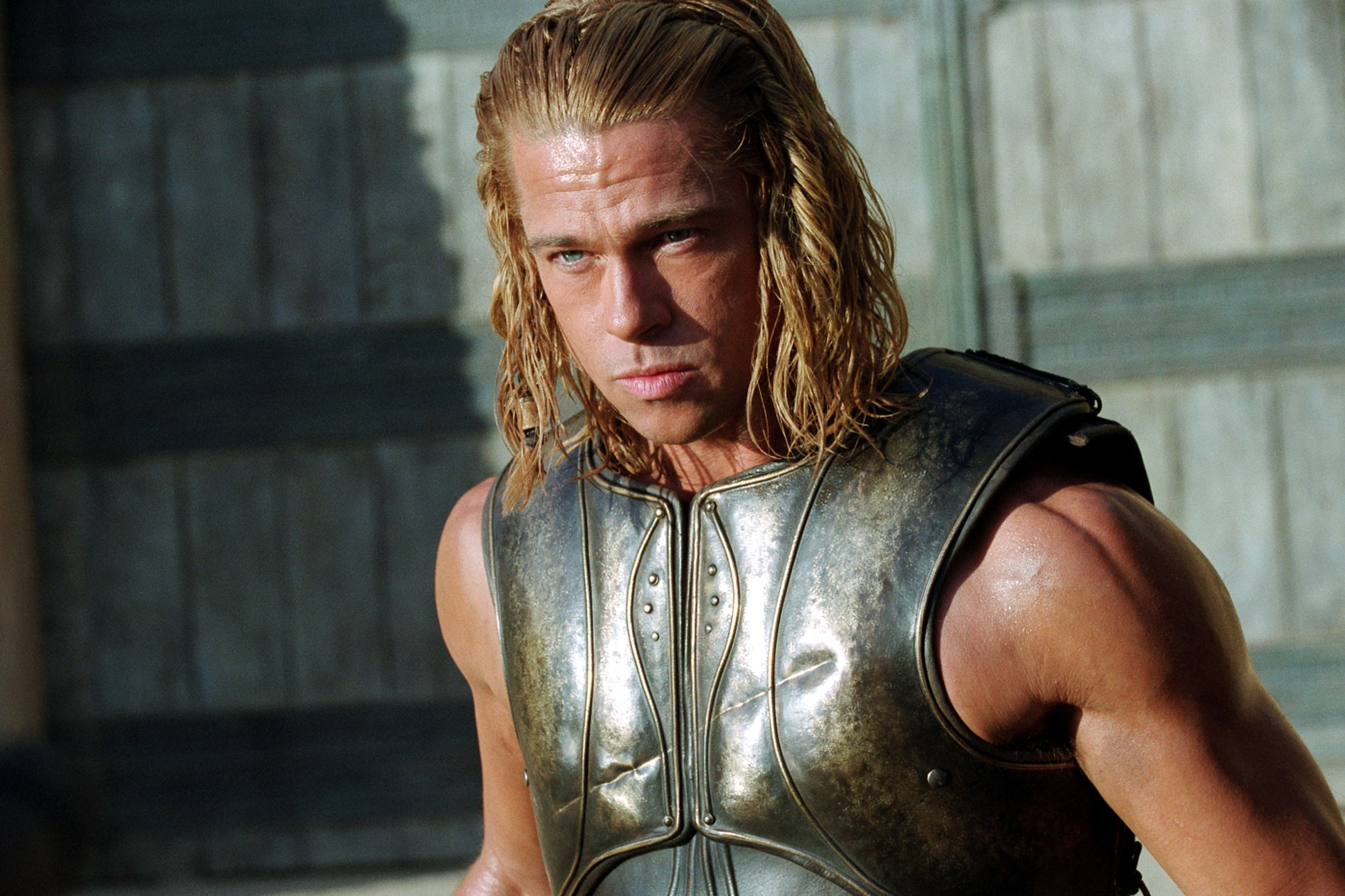
Troy recounts the legendary Trojan War as it unfolds between the kingdoms of Greece and Troy. The conflict is sparked when Prince Paris of Troy (Orlando Bloom) falls in love with Helen (Diane Kruger), the wife of King Menelaus of Sparta (Brendan Gleeson). In response, the Greek armies, led by King Agamemnon (Brian Cox), unite to sail to Troy and retrieve Helen. Among them are the fierce warrior Achilles (Brad Pitt), known for his invincible combat skills, and his cousin Patroclus (Garrett Hedlund). The Trojans, led by Prince Hector (Eric Bana), prepare to defend their city against the Greek invasion. As the war rages on, alliances are tested, gods intervene, and both sides face devastating losses, culminating in a climactic battle between Achilles and Hector that seals the fate of Troy.
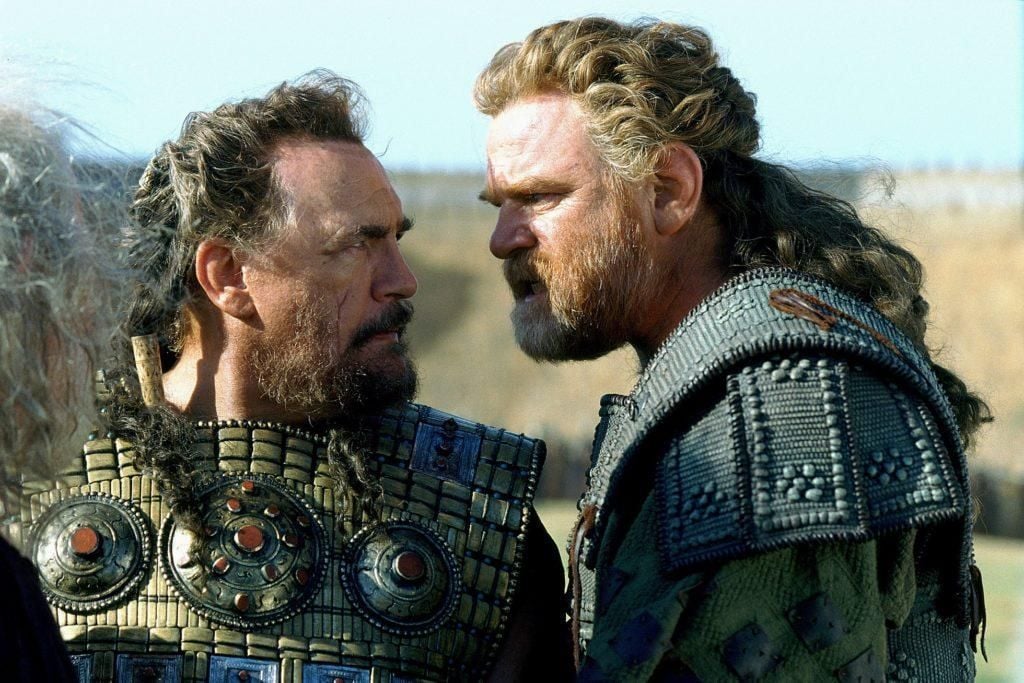
From the outset, Troy impresses with its ambitious scale, capturing the grandeur of ancient Greece and Troy with meticulous attention to detail. The sprawling sets, from the imposing walls of Troy to the majestic Greek ships, are breathtakingly rendered, immersing the audience in a world of myth and legend. The film’s production design, helmed by Nigel Phelps, deserves high praise for its authenticity and visual splendour, bringing an ancient civilisation vividly to life. The action sequences in the film are nothing short of spectacular. Petersen masterfully choreographs the battle scenes, ensuring they are both thrilling and visceral. The siege of Troy, in particular, is a highlight, with its intense combat and strategic manoeuvres keeping viewers on the edge of their seats. The duel between Achilles and Hector is a standout moment, showcasing not only impressive stunt work and choreography but also the raw physicality and skill of the actors. These scenes capture the brutal reality of war while maintaining a cinematic elegance that elevates the film’s epic tone.
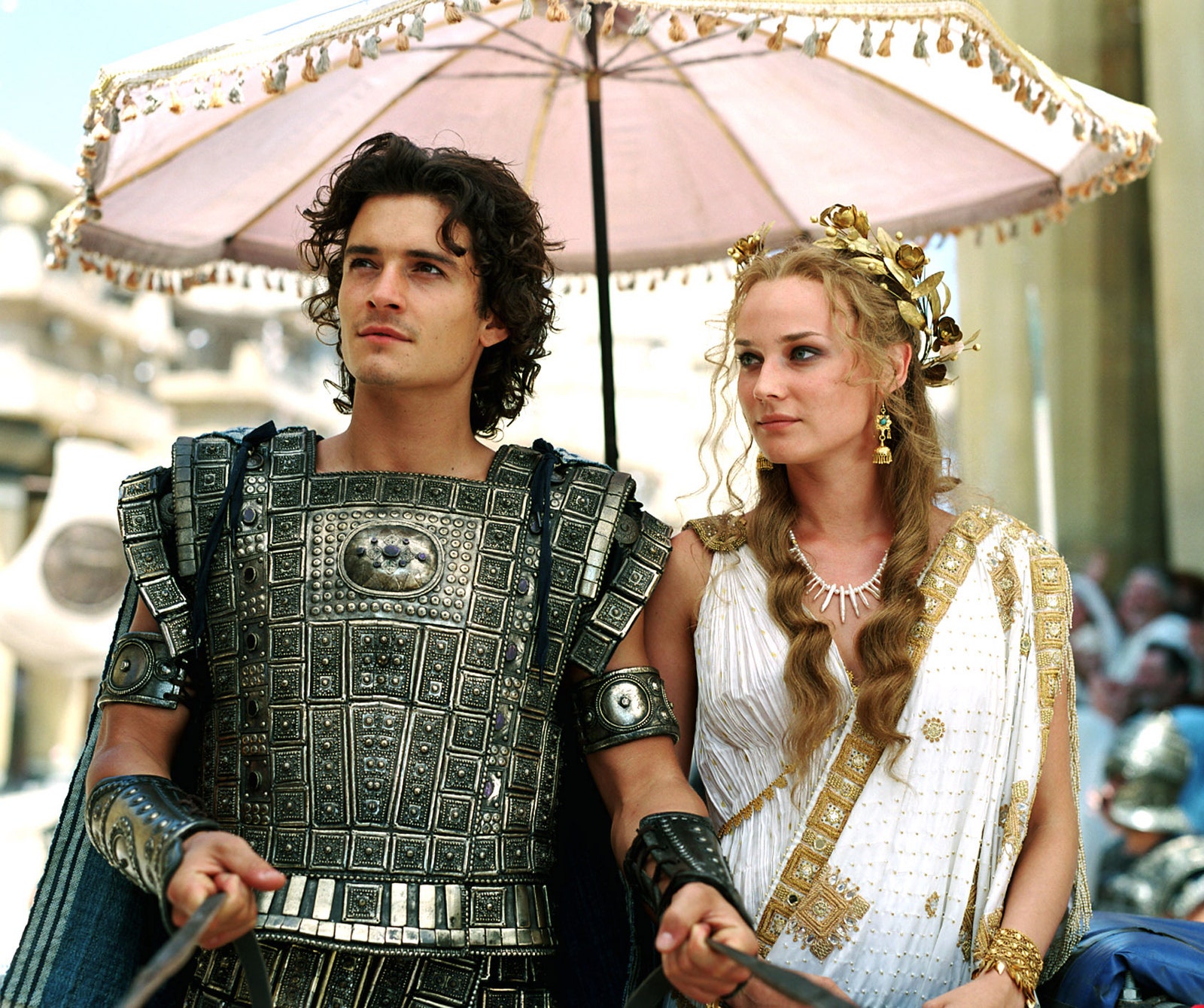
Brad Pitt’s portrayal of Achilles, the legendary Greek warrior, is compelling, highlighting his character’s complexity and inner conflict. Pitt balances Achilles’ fierce arrogance with moments of vulnerability, creating a multi-dimensional hero. Eric Bana’s Hector, the noble defender of Troy, provides a worthy counterpoint, exuding honour and a deep sense of duty. Their performances, alongside those of Peter O’Toole as King Priam and Brian Cox as Agamemnon, lend gravitas to the film’s larger-than-life narrative.
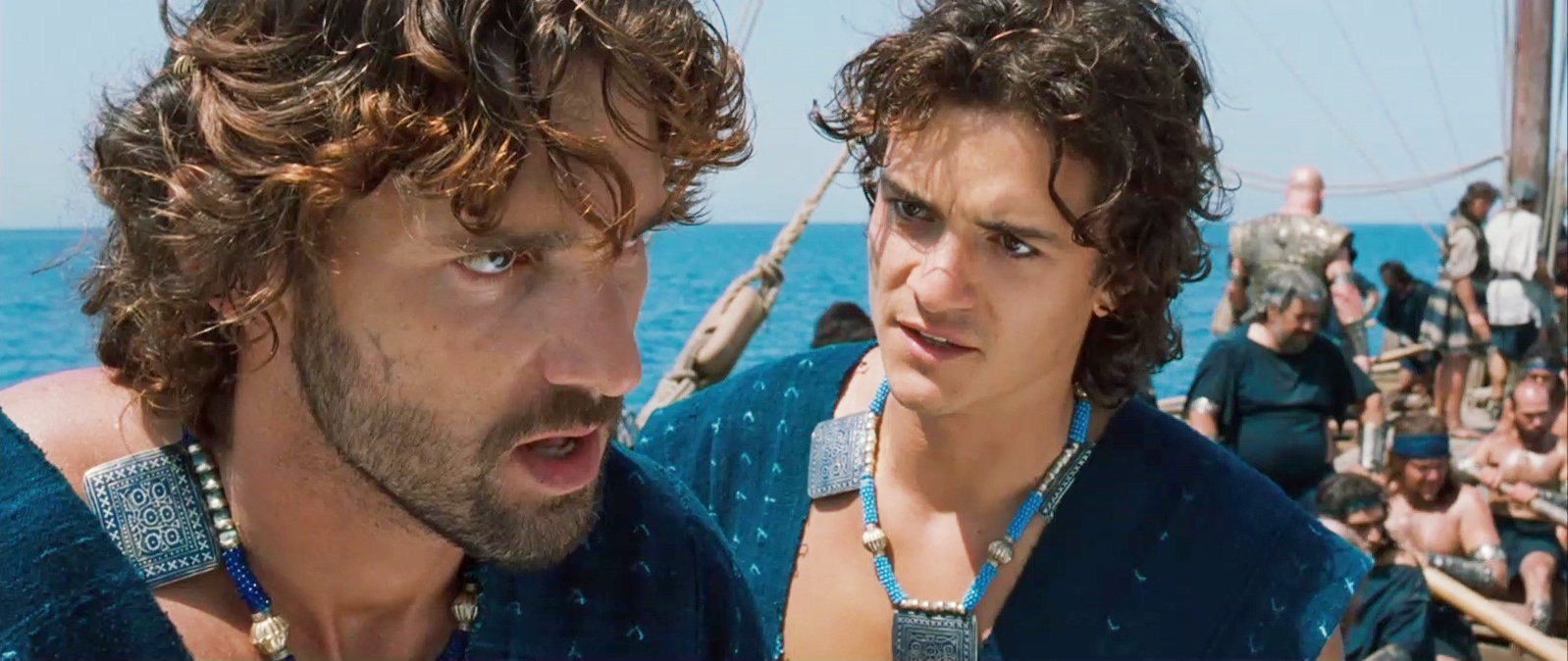
However, Troy is not without its flaws, particularly in its script and characterisations. While David Benioff’s screenplay aims to condense and adapt Homer’s Iliad for the screen, it occasionally stumbles in its execution. The dialogue often feels stilted and lacks the poetic depth one might expect from such a storied epic. Some of the character arcs are underdeveloped, leading to moments that should be emotionally resonant but instead fall flat. The romance between Paris (Orlando Bloom) and Helen (Diane Kruger), for instance, lacks the chemistry and depth needed to convincingly drive the plot’s central conflict. Certain story beats also feel rushed or inadequately explored. The motivations behind key decisions, such as Achilles’ initial refusal and subsequent decision to fight, are sometimes presented with insufficient build-up, detracting from the narrative’s overall coherence. Additionally, the film’s attempt to balance historical realism with mythological elements occasionally results in tonal inconsistencies that disrupt the story’s flow.
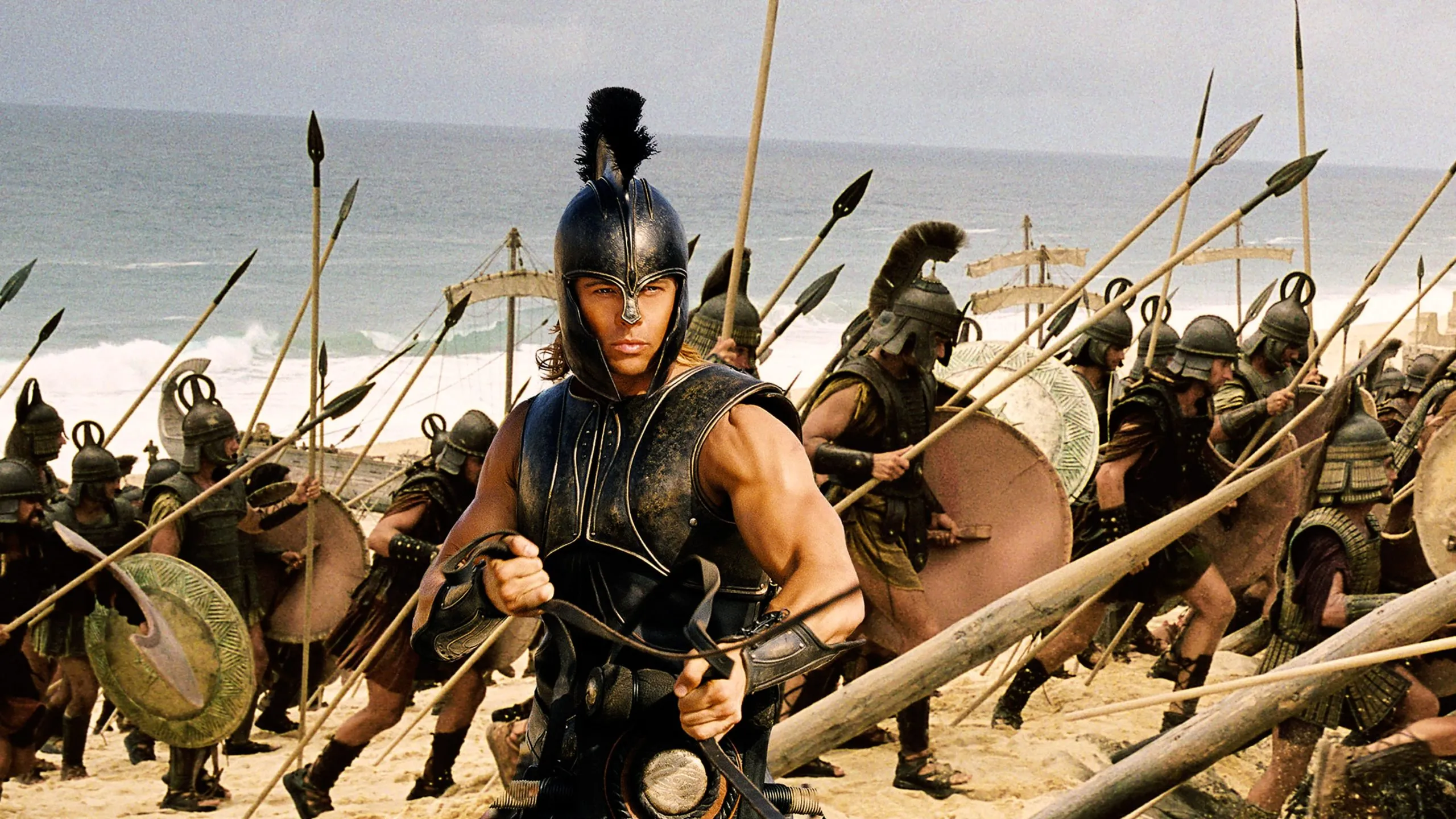
Despite these criticisms, Troy succeeds as a visually arresting and action-packed retelling of one of history’s greatest legends. Its epic scope and stunning production design make it a feast for the eyes, while the intense battle sequences deliver the excitement and grandeur that audiences expect from a historical epic. The film’s strengths lie in its ability to transport viewers to a bygone era of heroism and conflict, even if it occasionally falters in its storytelling and character depth. As a result, Troy is a film of grand ambitions that largely succeeds in bringing the mythic Trojan War to the big screen. Its epic scope, impressive production design, and thrilling action sequences make it a visually captivating experience. While the script and some characterisations leave room for improvement, the film’s overall impact is undeniably powerful, offering a cinematic journey through one of the most legendary tales ever told. For fans of historical epics and grand adventures, Troy remains a must-watch, showcasing the bombastic allure of ancient legends brought to life with modern cinematic prowess.

